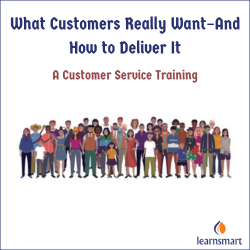
Good service creates customer satisfaction. Excellent service creates customer loyalty. Hence, by building service excellence into your organization, customer loyalty is increased which in turn results to profitable and sustainable business growth.
Implementing an effective service strategy with a focus on retaining customers has proven to be more effective at increasing sales and profit, than mere marketing campaigns, promotions or advertising. Thus there is a strong correlation between service delivery and profit with research showing that a 5% increase in customer service can result in a 25% increase in profit.
This implies that organizations that successfully marry the culture of profit with a strong service excellence ethic benefit from customers that stay longer, utilize more services and add to the all-important bottom line.
Service excellence is a first rate service that consistently delivers truly memorable experience, each time, every time.
For the power of service excellence to be harnessed to drive customer loyalty and service profitability, it’s imperative to understand the service concept.
The service concept is a critical element in knowing and defining what the organization is selling or providing and what the customer is buying or using. The service concept (and its development) is a core task in managing service delivery. It can be used as a central tool in the design, delivery and improvement of services, yet its potential is often underutilized.
The service concept is something very important to service organizations, but is often not articulated, shared or understood. It is something that is more emotional than a business model, deeper than a brand, and more solid than a vision. It is also something that can unite employees and customers and create a business advantage.
It’s important to recognize that what customers buy are concepts. In other words, when buying (or using) services, customers tend not to be simply buying the elements of a service but something much greater and usually more intangible.
For instance, looked at simply, in terms of its elements, a hotel provides a bed, bathroom and food. But looked at as a concept it can provide anything from a low-cost, comfortable night’s sleep, through a relaxing and pampered stay, to a truly unique and unforgettable experience.
Also, at an elemental level, a post graduate business school provides lectures, food, accommodation and books, but what its customers are looking to buy is something much greater – ‘employability’. Likewise, we go to a restaurant for ‘a great evening out’ or to a firm of consultants for ‘peace of mind’.
The service concept is a shared understanding of the nature of the service provided and received, which should include information about:
The organizing idea – the essence of the service bought, or used, by the customer.
The service experience – The customer’s direct experience of the service process, which concerns the way the organization deals with the customer.
The service outcome – The result for the customer of the service (in particular, the benefits provided, the resulting emotions and assessment of value for money).
A service concept with clarity and sufficient detail guides employees to know what to deliver to the customer, how to deliver it, and what to offer to the marketplace. So it is important that it is well defined and agreed so that all different business units can be aligned. Yet it is surprising how few organizations have clearly defined service concepts.
When the service concept is not clearly defined, customers’ expectations are not met, employees feel frustrated and there is tension between business units (especially operations and marketing) – a mere reflection of the fact that the service concept is the very soul of service excellence.
What is your organization’s service concept? Is there a shared understanding of what it is amongst all employees? If not, there is need to start work on it.